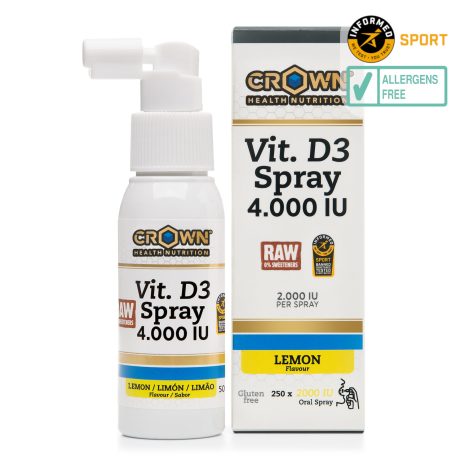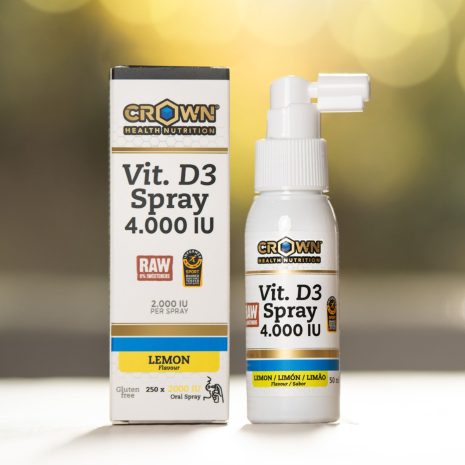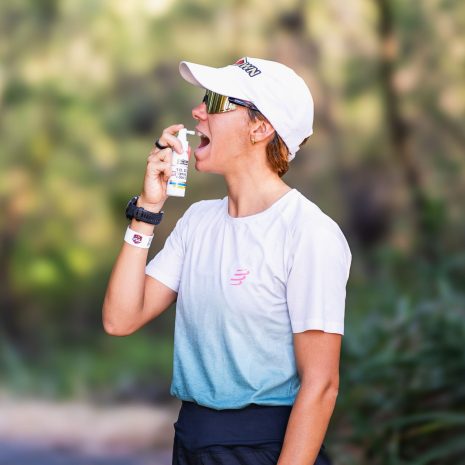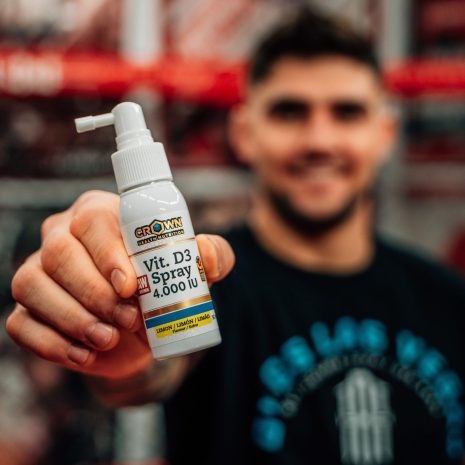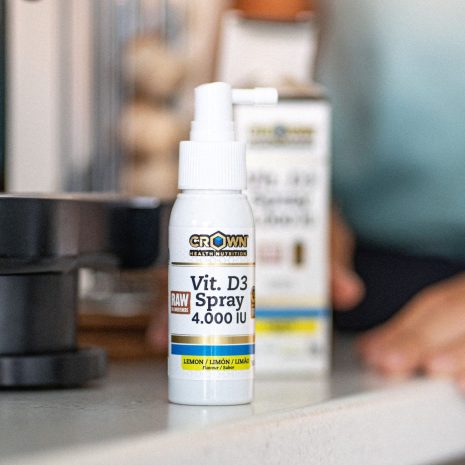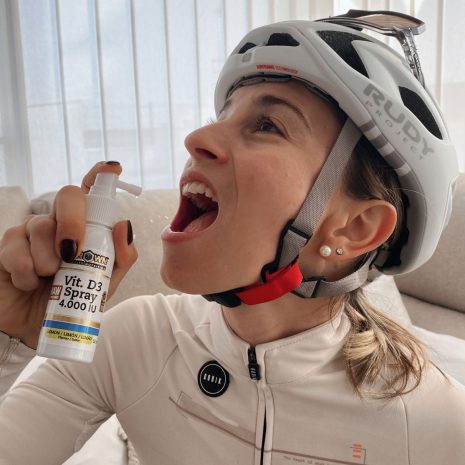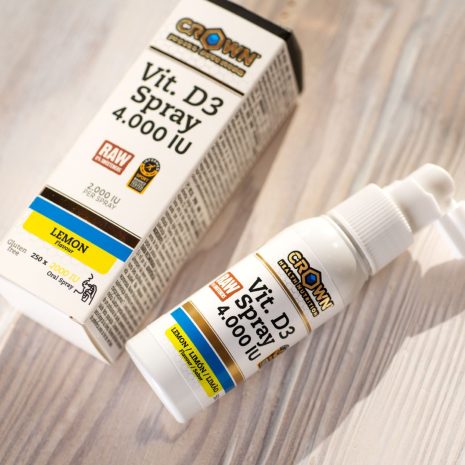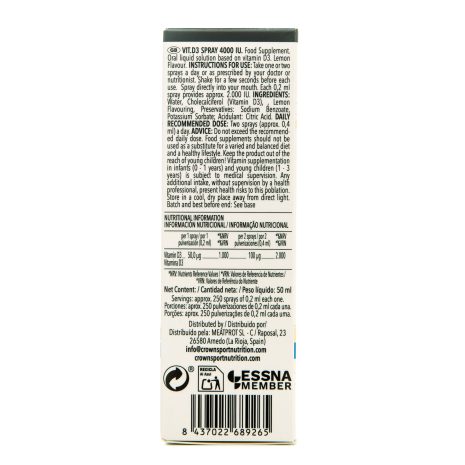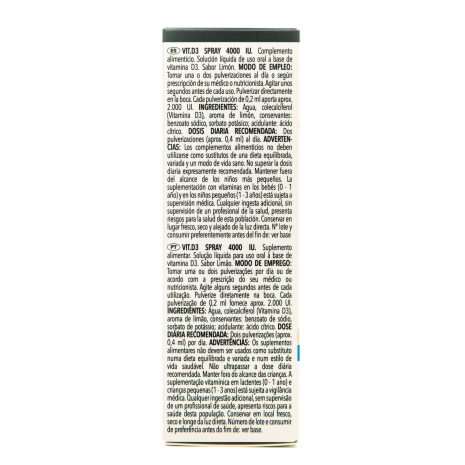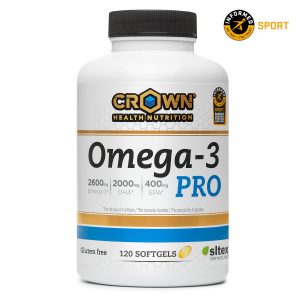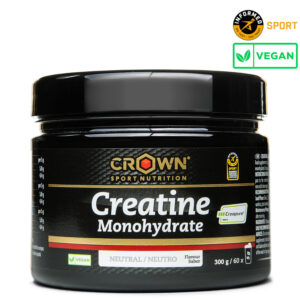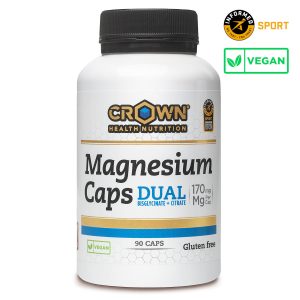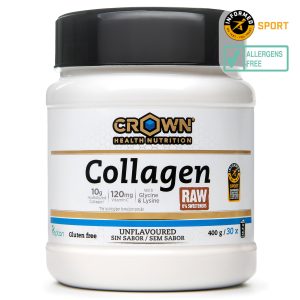Vitamina D3 Spray 4000 UI (Sin edulcorantes)
29,95€ Iva incluido
Innovador spray bucal de alta concentración en vitamina D3 altamente asimilable ya que asegura una absorción directa en la boca sin necesidad de digestión. Cada bote tiene 250 pulverizaciones que aportan 50 µg (2.000 UI). Sin edulcorantes, 100% libre de alérgenos y apto para vegetarianos. Con certificado antidoping Informed Sport.
Envío gratuito.
Sin existencias

Vitamina D en Spray altamente concentrada y asimilable
- Alta concentración de Vit. D: 2000 UI/pulverización
- Alta concentración de Vit. D: 50 µg (1.000% VRN)/pulverización
- En Forma de Spray bucal para una Fácil dosificación.
- Mayor absorción y biodisponibilidad que los formatos convencionales
- Con certificado antidoping por Informed-Sport
- Sin edulcorantes, Libre de alérgenos y Apto para Vegetarianos
Vitamina. D3 Spray 4.000 IU
es un novedoso spray bucal a base de vitamina D3 altamente concentrado, fácil de dosificar y, lo más importante, altamente asimilable porque no requiere de digestión previa, ya que se absorbe directamente en la boca. Aportando 50 µg por pulverización, es decir, el 1.000% de la VRN o, lo que es lo mismo, 2.000 UI (Unidades Internacionales). No contiene edulcorantes ni excipientes o aditivos innecesarios, lo que le confiere una alta pureza, por eso es tan concentrado. También es 100% libre de alérgenos y apto para vegetarianos.
La vitamina D o Calciferol es una vitamina liposoluble, es decir, que es soluble en grasas por lo que se recomienda su ingesta junto con alimentos que contengan grasa. De manera natural se encuentra como vitamina D3 (colecalciferol) en alimentos de origen animal que contienen grasa como, por ejemplo, en los pescados grasos o azules como el salmón, la caballa, etc., la yema del huevo, los lácteos enteros y sus derivados (no desnatados), etc. También en alimentos de origen vegetal (aunque en menor medida) en forma de vitamina D2 (ergocalciferol), por ejemplo, en el aguacate, en los hongos silvestres, en los frutos secos y algunas semillas como la de sésamo. Y, es de sobra conocido, que la principal fuente de obtención y, quizá, la más importante es la vitamina D3 que generamos nosotros mismos mediante la exposición a la luz solar. Hay que tener en cuenta que tanto la vitamina D2 como las D3 son formas inactivas que una vez ingeridas se han de activar para poder ejercer sus funciones (aprox. solo se absorbe el 50% de la ingerida). Mientras que la generada por vía cutánea, con la radiación UVB incidiendo en el 7-dehidrocolesterol, que se encuentra en la dermis, se sintetiza directamente una pre-vitamina D3.
Funciones a nivel general
La vitamina D es tan importante que a día de hoy hay un abierto debate entre la comunidad científica para considerarla casi más como una hormona que como una simple vitamina. Esto es debido a su amplia e importante funcionalidad (que ahora veremos) y a que los diferentes tejidos, entre ellos el muscular, poseen receptores específicos para esta vitamina, de ahí que algunos lo consideren más una hormona. A nivel general, es importante porque está implicada en procesos de crecimiento y mineralización ósea, la función muscular y la sarcopenia, para el sistema inmune, para el sistema nervioso y la neurodegeneración, además de tener un papel fundamental en la prevención de diversas enfermedades crónicas como las enfermedades inflamatorias (por ejemplo, las autoinmunes), el cáncer, enfermedades cardiovasculares, etc. Tanto es así que algunos organismos tan importantes a nivel mundial como la EFSA (European Food Safety Authority) le conceden a la vitamina D importantes beneficios como los publicados en el año 2012 que tienen que ver con todo lo comentado anteriormente y que se resumen así: la vitamina D contribuye al funcionamiento normal del sistema inmunitario, contribuye al proceso de división celular, contribuye a la absorción y utilización normal del calcio y el fósforo, contribuye al mantenimiento de niveles normales de calcio en sangre, contribuye al mantenimiento de los huesos en condiciones normales, contribuye al funcionamiento normal de los músculos, contribuye al mantenimiento de los dientes en condiciones normales.
Beneficios para los deportistas
Como acabamos de comentar, todas las funciones son importantes también para los deportistas, pero quizá las más relacionadas con el deporte son las que tienen que ver con las funciones musculares y las del metabolismo del calcio y fósforo. En relación con esto último, sabemos la implicación directa del calcio con la contracción muscular, aspecto clave en el deporte, por lo que de manera indirecta la vitamina D podría ser clave para la mejora del rendimiento o al menos la calidad del entrenamiento. A nivel de fuerza e hipertrofia, sobre todo en personas mayores, parece que podría aumentar tanto el número como el tamaño de las fibras tipo II (fibras rápidas) que son las más sensibles a la hipertrofia lo que está directamente relacionado con prevenir la sarcopenia, también parece aumentar ciertas hormonas relacionadas con esto como el IGF-1 y la testosterona (Lerchbaum, E. et al., JCEM. 2017). Por lo anterior, aunque el consenso no es claro, parece tener un papel importante en las adaptaciones al ejercicio intenso y en la recuperación muscular (Dzik, K.P. et al., EJAP. 2019). También, relacionado con esto, parece que la vitamina D ejerce una mejora en la sensibilización de las células frente a los aminoácidos y, por ende, de las proteínas, mejorando los procesos de síntesis proteica (Pfeifer, M. et al., OI. 2002). Cuando la vitamina D se une a su receptor en la célula muscular, en el citoplasma se activan genes que posteriormente activan unas proteínas que regulan las células satélite que tienen que ver con la regeneración muscular. También parece mejorarse la síntesis de las proteínas contráctiles, es decir, la actina y la miosina; además de inhibir de manera indirecta la miostatina. Por último, parece mejorar la función mitocondrial y tener acciones antiinflamatorias y antioxidantes.
No está demostrada su eficacia como ayuda ergogénica, es decir, que mejore el rendimiento de manera directa, pero lo que sí parece es que tener unos bajos niveles de esta vitamina es negativo de cara al rendimiento (Montenegro, K.R. et al., NRR. 2019).
Riesgos, Déficit y ¿Por qué suplementarnos?
Por todo lo comentado anteriormente su déficit puede acarrear serios problemas de salud, entre ellos, el más conocido, es el del raquitismo o desmineralización de los huesos. A nivel cognitivo puede haber deterioro, depresión o pensamientos suicidas. Y, los que afectan a nivel muscular, que son los que más tienen que ver con el deporte, como la debilidad muscular que puede influir y/o derivar en sarcopenia y en problemas contráctiles, lo que aumentan las posibilidades de tener una lesión (Maroon, J.C. et al., AJSM. 2015). También se ha visto que los deportistas con déficit tenían más riesgo de contraer enfermedades (Halliday, T.M. et al., MSSE. 2011), por ejemplo, infecciones respiratorias, como se ratificó en un meta-análisis (Martineau, A.R. BMJ. 2017).
Aunque no debería ser así, en la actualidad, hay una “pandemia mundial” por déficit de vitamina D, esto es debido a que pasamos mucho tiempo en interiores, la alimentación es desequilibrada, uso excesivo de protectores solares y/o poca exposición al sol son las principales causas de esta disminución en los niveles de esta vitamina. Se calcula que entorno al 88% de la población mundial sufre déficit. Estas cifras incluyen también a los deportistas, sobre todo a aquellos de disciplinas “indoor”.
Aunque seguir una dieta equilibrada debería ser suficiente para tener los aportes diarios necesarios, como ya hemos comentado, no es así por lo que recurrir a un suplemento es la manera más rápida, fácil y efectiva de elevar los niveles generales de vitamina D. Con una simple analítica podemos saber si necesitamos o no suplementarnos.
¿Por qué en Spray?
Hay numerosas formas galénicas que podemos usar para suplementarnos como las cápsulas, las perlas, etc., las diferencias entre ellas son, por un lado, la cantidad que contienen y, por otro lado, la biodisponibilidad de la misma, es aquí donde el formato en Spray bucal es diferenciador lo primero por su fácil dosificación, pulverizando directamente en la boca, eso hace que pueda ser súper-concentrado. Además, el nivel de biodisponibilidad es máximo debido a que no tiene que pasar una digestión vía estómago, pasando directamente y de forma inmediata al torrente sanguíneo debido a que las microgotas penetran en los capilares de la mucosa bucal. Todo esto se traduce en una alta absorción y eficacia frente a otros formatos (concentración plasmática mayor vs perlas en 30 días de tratamiento) (Satia, M.C. et al., NJ. 2015).
Y sin olvidar que Vit. D3 Spray 4.000 IU es 100% seguro al tener la certificación antidoping por el Informed-Sport.
Modo de empleo: Tomar una o dos pulverizaciones al día o según prescripción de su médico o nutricionista. Agitar unos segundos antes de cada uso. Pulverizar directamente en la boca. Cada pulverización de 0,2 ml aporta aprox. 2.000 UI.
Consejos profesionales:
- Si estás consumiendo un suplemento de vitamina D: es recomendable suplementarse con Magnesio, ya que éste mejora la absorción, el transporte y la activación de la vit. D.
- Aunque es altamente asimilable, para potenciar su absorción se recomienda tomar junto con alguna comida o alimento que contenga grasa.
| INFORMACIÓN NUTRICIONAL | por 1 pulverización | %VRN* | por 2 pulverizaciónes | %VRN* |
|---|---|---|---|---|
| Vitamina D3 | 50μg | 1.000% | 100μg | 2.000% |
| En Unidades Internacional | ||||
| Vitamina D3 | 2.000UI | 4.000UI | ||
Ingredientes: Agua, colecalciferol (Vitamina D3), aroma de limón, conservantes: benzoato sódico, sorbato potásico; acidulante: ácido cítrico.
También te recomendamos…
-
Creatina Monohidrato (Creapure®) – Sabor Neutro
Rango de precios: desde 1,29€ hasta 35,99€ Iva incluido -
Colágeno hidrolizado sin edulcorantes RAW Peptan® (400 g)
Rango de precios: desde 2,00€ hasta 34,95€ Iva incluido

